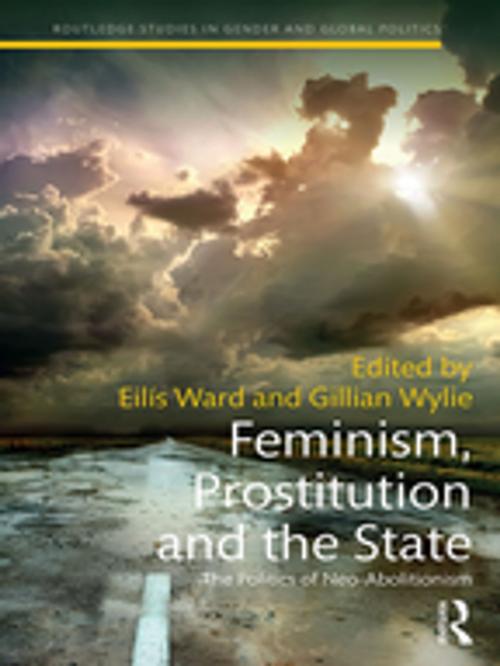Feminism, Prostitution and the State
The Politics of Neo-Abolitionism
Nonfiction, Social & Cultural Studies, Political Science, International, International Relations, Politics, History & Theory| Author: | ISBN: | 9781317370116 | |
| Publisher: | Taylor and Francis | Publication: | February 17, 2017 |
| Imprint: | Routledge | Language: | English |
| Author: | |
| ISBN: | 9781317370116 |
| Publisher: | Taylor and Francis |
| Publication: | February 17, 2017 |
| Imprint: | Routledge |
| Language: | English |
This edited volume focuses on charting the rise of neo-abolitionism and offering a critique of the idea, its logics and consequences. A model of state policy which aims to abolish prostitution through legislation, Neo-abolitionism criminalises the buyer of sex but not the seller. It is currently law in Sweden and other Nordic states and dominates the framing of policy debates in many other Western liberal contexts. Pressure for adoption of this policy has come from radical feminists who understand prostitution and sex trafficking as a form of violence against women.
This volume argues that this convergence between radical feminism and state’s interests arises from the emergence of, on the one hand, ‘governance feminism’ which seeks to have its ideals implemented through ‘top-down sovereigntist means’, and on the other hand, state’s interests in legitimising stricter border controls and law enforcement responses in relation to transnational organised criminality, ‘illegal’ migration, and security.
Based around a series of country case studies each chapter will explore the politics surrounding the emergence of neo-abolitionism and its trajectory through those polities, whether the paradigm has been adopted, rejected or is still under debate. The volume will be of great interest to students and scholars of Social and Public Policy, Gender and Women’s Studies, Politics and International Relations and Critical Legal Studies/Criminology.
This edited volume focuses on charting the rise of neo-abolitionism and offering a critique of the idea, its logics and consequences. A model of state policy which aims to abolish prostitution through legislation, Neo-abolitionism criminalises the buyer of sex but not the seller. It is currently law in Sweden and other Nordic states and dominates the framing of policy debates in many other Western liberal contexts. Pressure for adoption of this policy has come from radical feminists who understand prostitution and sex trafficking as a form of violence against women.
This volume argues that this convergence between radical feminism and state’s interests arises from the emergence of, on the one hand, ‘governance feminism’ which seeks to have its ideals implemented through ‘top-down sovereigntist means’, and on the other hand, state’s interests in legitimising stricter border controls and law enforcement responses in relation to transnational organised criminality, ‘illegal’ migration, and security.
Based around a series of country case studies each chapter will explore the politics surrounding the emergence of neo-abolitionism and its trajectory through those polities, whether the paradigm has been adopted, rejected or is still under debate. The volume will be of great interest to students and scholars of Social and Public Policy, Gender and Women’s Studies, Politics and International Relations and Critical Legal Studies/Criminology.















